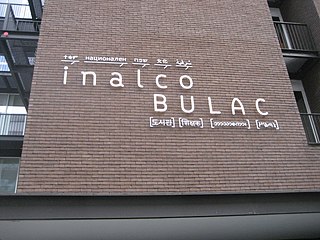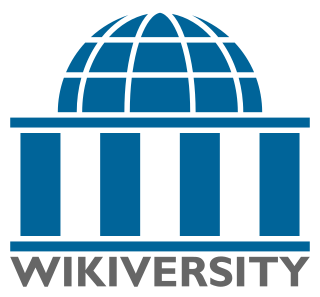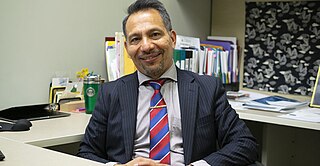
In bilingual education, students are taught in two languages. It is distinct from learning a second language as a subject because both languages are used for instruction in different content areas like math, science, and history. The time spent in each language depends on the model. For example, some models focus on providing education in both languages throughout a student's entire education while others gradually transition to education in only one language. The ultimate goal of bilingual education is fluency and literacy in both languages through a variety of strategies such as translanguaging and recasting.

An endangered language or moribund language is a language that is at risk of disappearing as its speakers die out or shift to speaking other languages. Language loss occurs when the language has no more native speakers and becomes a "dead language". If no one can speak the language at all, it becomes an "extinct language". A dead language may still be studied through recordings or writings, but it is still dead or extinct unless there are fluent speakers. Although languages have always become extinct throughout human history, they are currently dying at an accelerated rate because of globalization, mass migration, cultural replacement, imperialism, neocolonialism and linguicide.
Collaborative writing, or collabwriting is a method of group work that takes place in the workplace and in the classroom. Researchers expand the idea of collaborative writing beyond groups working together to complete a writing task. Collaboration can be defined as individuals communicating, whether orally or in written form, to plan, draft, and revise a document. The success of collaboration in group work is often incumbent upon a group's agreed upon plan of action. At times, success in collaborative writing is hindered by a group's failure to adequately communicate their desired strategies.
Applied linguistics is an interdisciplinary field which identifies, investigates, and offers solutions to language-related real-life problems. Some of the academic fields related to applied linguistics are education, psychology, communication research, information science, natural language processing, anthropology, and sociology.

Language immersion, or simply immersion, is a technique used in bilingual language education in which two languages are used for instruction in a variety of topics, including math, science, or social studies. The languages used for instruction are referred to as the L1 and the L2 for each student, with L1 being the student's native language and L2 being the second language to be acquired through immersion programs and techniques. There are different types of language immersion that depend on the age of the students, the classtime spent in L2, the subjects that are taught, and the level of participation by the speakers of L1.

Multilingualism is the use of more than one language, either by an individual speaker or by a group of speakers. It is believed that multilingual speakers outnumber monolingual speakers in the world's population. More than half of all Europeans claim to speak at least one language other than their mother tongue; but many read and write in one language. Multilingualism is advantageous for people wanting to participate in trade, globalization and cultural openness. Owing to the ease of access to information facilitated by the Internet, individuals' exposure to multiple languages has become increasingly possible. People who speak several languages are also called polyglots.

Institut national des langues et civilisations orientales(English: National Institute for Oriental Languages and Civilizations), abbreviated as INALCO, is a French university specializing in the teaching of languages and cultures from the world. Its coverage spans languages of Central Europe, Africa, Asia, America, and Oceania.

Leonard Orban is a Romanian independent technocrat who served as the Commissioner for Multilingualism in the European Commission, the executive body of the European Union (EU). He was responsible for the EU language policy and was the first Romanian Commissioner and the first member of the Commission whose portfolio is exclusively multilingualism. His term of office began on 1 January 2007 and ended on 9 February 2010. With a background in engineering and economics, Orban has taken up various posts working for the accession of Romania to the European Union, most prominently as Deputy and later as Chief Negotiator for his country at the time of final negotiations with the European Union.

Wikiversity is a Wikimedia Foundation project that supports learning communities, their learning materials, and resulting activities. It differs from Wikipedia in that it offers tutorials and other materials for the fostering of learning, rather than an encyclopedia. It is available in many languages.

System is a peer-reviewed academic journal covering the applications of educational technology and applied linguistics to problems of foreign language teaching and learning. It was established in 1973 and is published by Elsevier. As of 2022, the editors-in-chief, in alphabetical order, are Idoia Elola, Mairin Hennebry, Jim McKinley, Lawrence Jun Zhang, and Yongyan Zheng. The associate editor is Vincent Greenier, the book reviews editor is Pascal Matzler, and the student editor is Nathan Thomas. Until 2013, System published four issues per year. In 2014, it published six issues, and since 2015 it has published eight issues per year.
Nchumbulu or Nchummuru is a Guang language of Ghana. It is spoken in parts of Bono East, Oti, Northern and Savannah regions.
The Journal of Multilingual and Multicultural Development is a peer-reviewed academic journal covering the study of topics in the sociology and social psychology of language, in language and cultural politics, policy, planning, and practice. The editor-in-chief is John Robert Edwards. It was established in 1980 and is published in 7 issues per year by Routledge.
Translanguaging is a term that can refer to different aspects of multilingualism. It can describe the way bilinguals and multilinguals use their linguistic resources to make sense of and interact with the world around them. It can also refer to a pedagogical approach that utilizes more than one language within a classroom lesson. The term "translanguaging" was coined in the 1980s by Cen Williams in his unpublished thesis titled “An Evaluation of Teaching and Learning Methods in the Context of Bilingual Secondary Education.” Williams used the term to describe the practice of using two languages in the same lesson, which differed from many previous methods of bilingual education that tried to separate languages by class, time, or day. In addition, Vogel and Garcia argued that translanguaging theory posits that rather than possessing two or more autonomous language systems, as previously thought when scholars described bilingual or multilingual speakers, bilinguals and multilingual speakers select and deploy their languages from a unitary linguistic repertoire. However, the dissemination of the term, and of the related concept, gained traction decades later due in part to published research by Ofelia García, among others. In this context, translanguaging is an extension of the concept of languaging, the discursive practices of language speakers, but with the additional feature of using multiple languages, often simultaneously. It is a dynamic process in which multilingual speakers navigate complex social and cognitive demands through strategic employment of multiple languages.
The International Association of Multilingualism (IAM) is an academic, scientific professional association whose members undertake research in all areas of linguistics dealing with all facets of multilingualism. Research has focused on tri- and quadruple language acquisition by children, as well as on societal instances of multilingualism or on cases of individual multilingual repertoires, for example. IAM members work in various linguistic fields, including psycholinguistics, sociolinguistics, educational linguistics, language acquisition and applied linguistics.

Neomy Storch is an Australian linguist. She is currently an Associate Professor of applied linguistics at the University of Melbourne, Australia. Her research focuses on second language acquisition with a special focus on second language writing. She is noted for her work on second language acquisition, collaborative writing, and academic writing.

Martin Guardado is a Salvadorian-born Canadian sociolinguist. He is currently a professor of sociocultural linguistics and applied linguistics at the University of Alberta. His research focuses on heritage language socialization and teaching English as a second language. He is noted for his work on heritage language socialization and for recommending that heritage languages need to be studied multidimensionally as well as from macro and micro perspectives. His recent and current research respectively examines the experiences of Japanese-Canadian mothers in mixed language families in Montreal and the characteristics of mixed language parents across a number of linguistic groups in Alberta.

The Tai Noi or Lao Buhan script is a Brahmic script that has historically been used in Laos and Isan since about 1500 CE. The contemporary Lao script is a direct descendant and has preserved the basic letter shapes. The script has mostly dropped out of use in the Isan region of Thailand, due to the Thaification policies of the Thai government, that imposed Central Thai culture such as the Thai script throughout the country.

Jasone Cenoz is a professor of education at the University of the Basque Country (UPV/EHU) University of the Basque Country in Donostia-San Sebastian, Spain since 2004. From 2000 to 2004 she was Professor of Applied Linguistics at the University of the Basque Country in Vitoria-Gasteiz. Her research focuses on multilingual education, bilingualism and multilingualism. She is known for her work on the influence of bilingualism on third language acquisition, pedagogical translanguaging, linguistic landscape, minority languages and Content and Language Integrated Learning.











